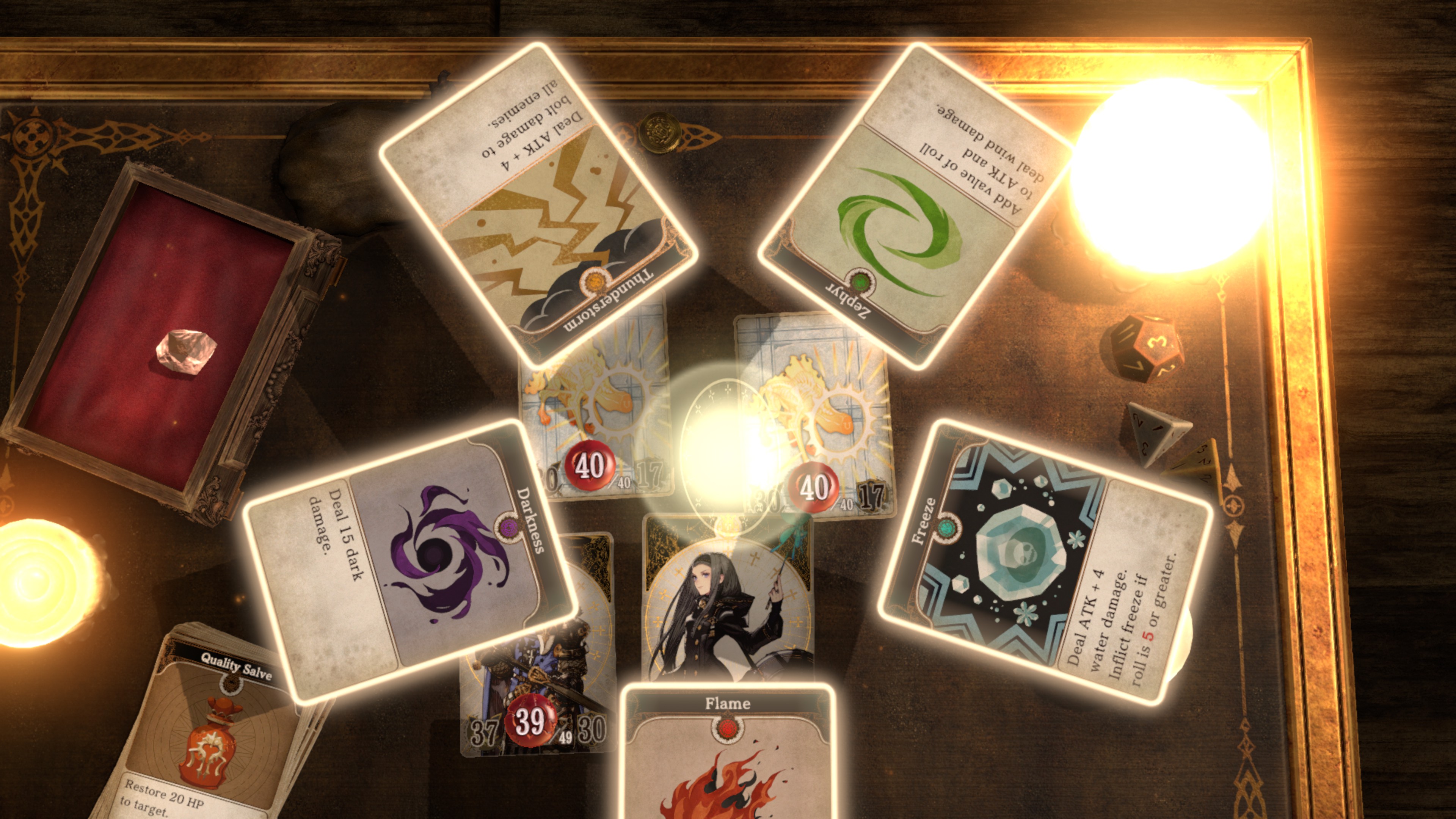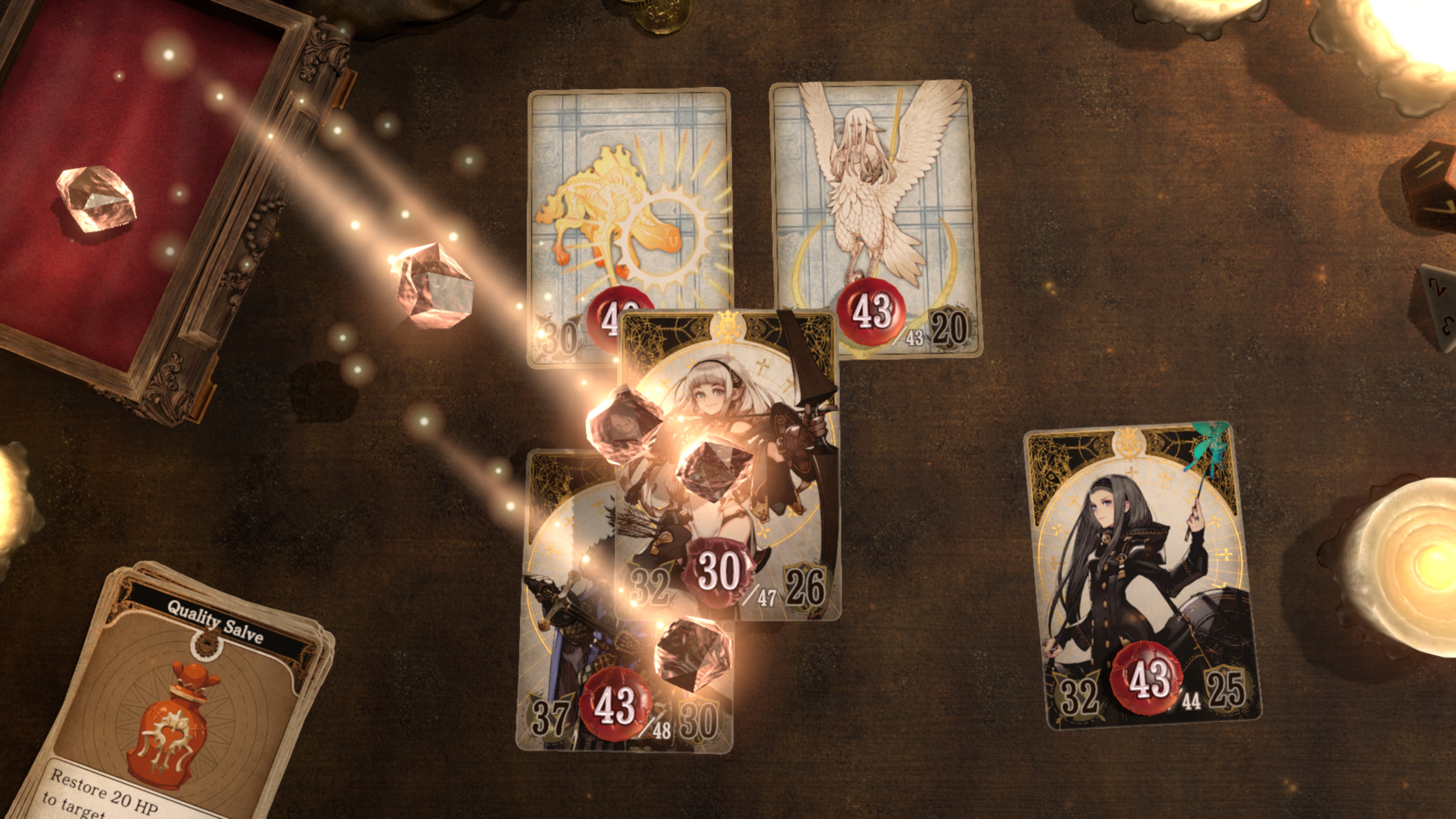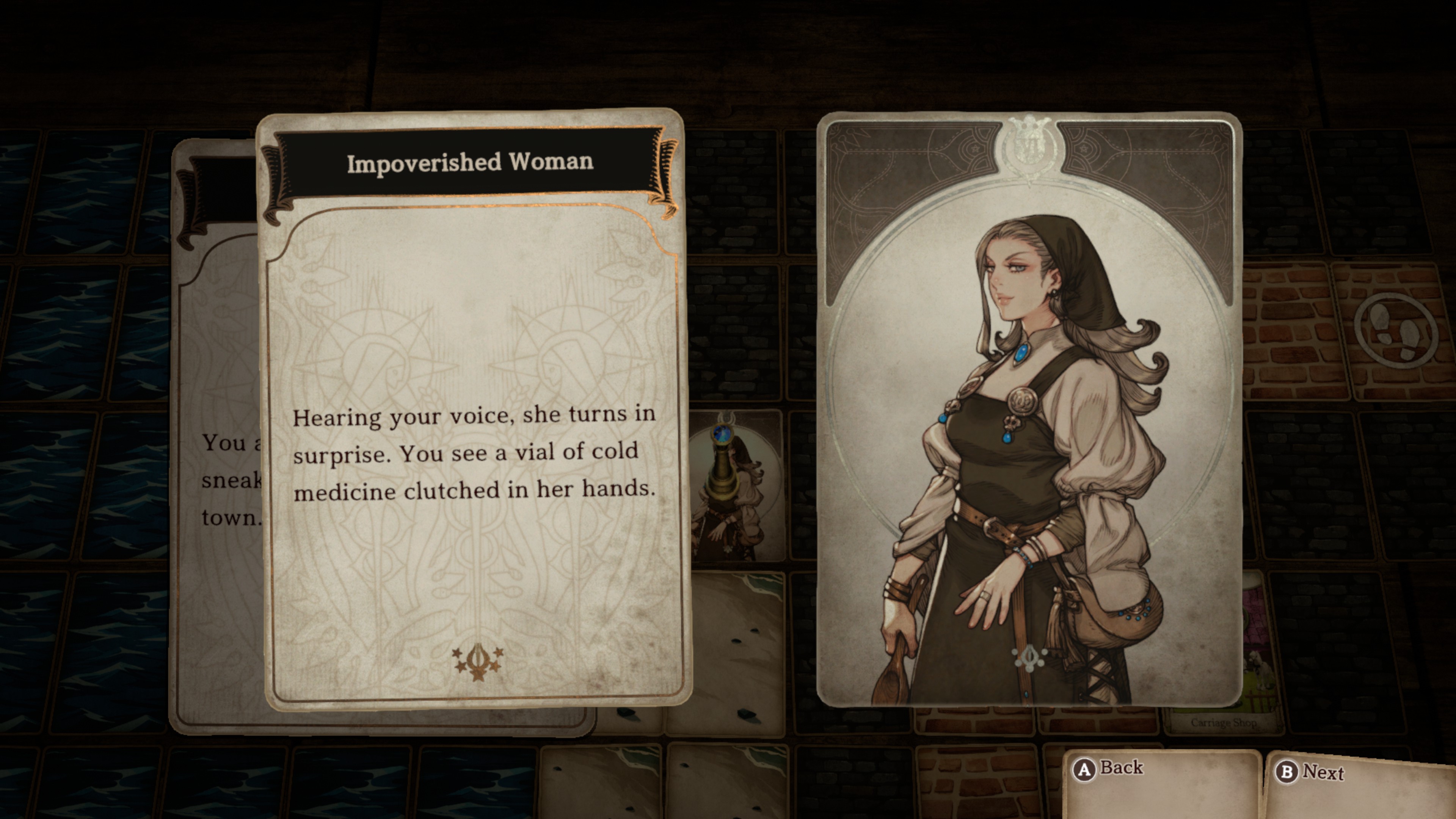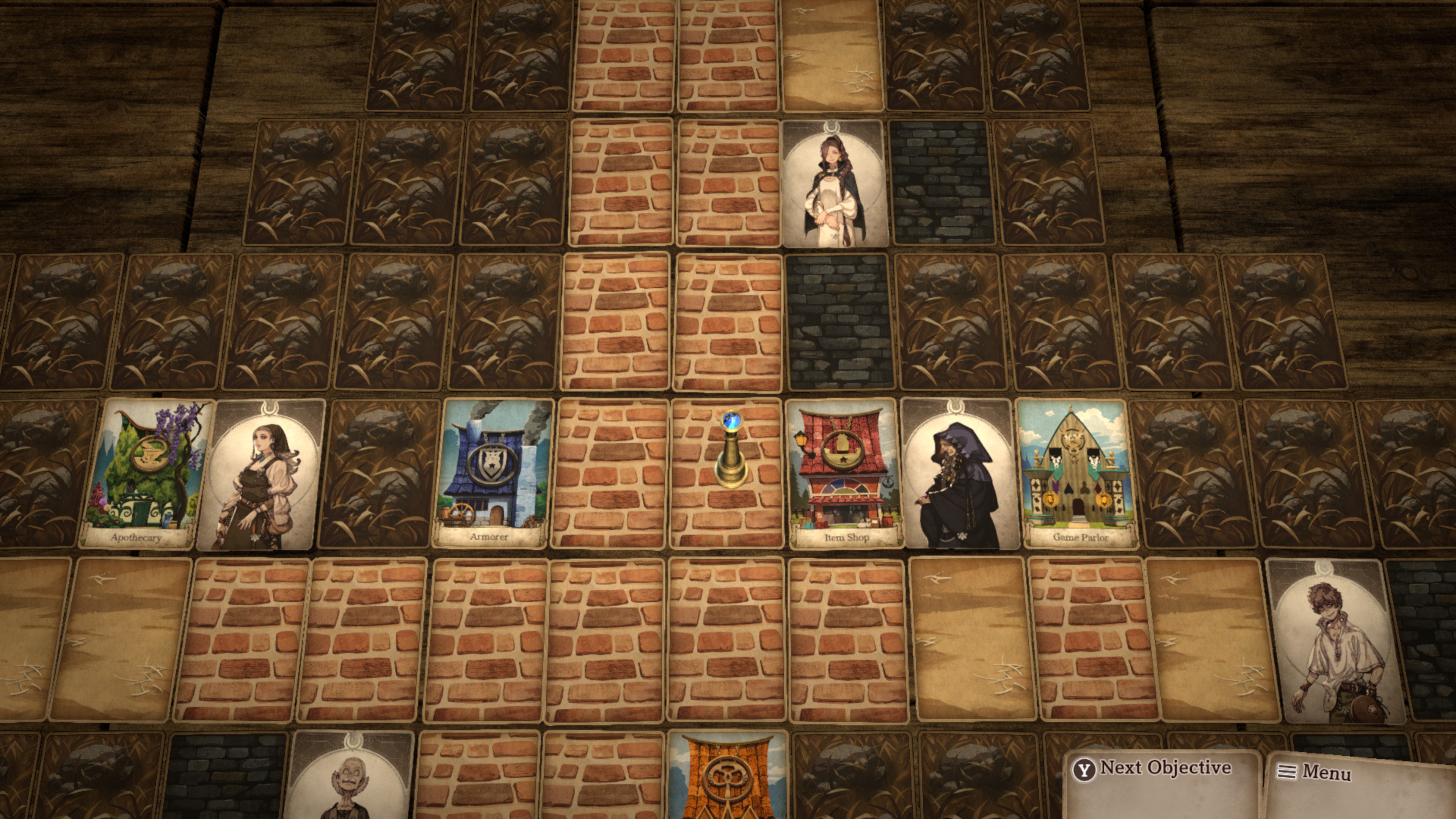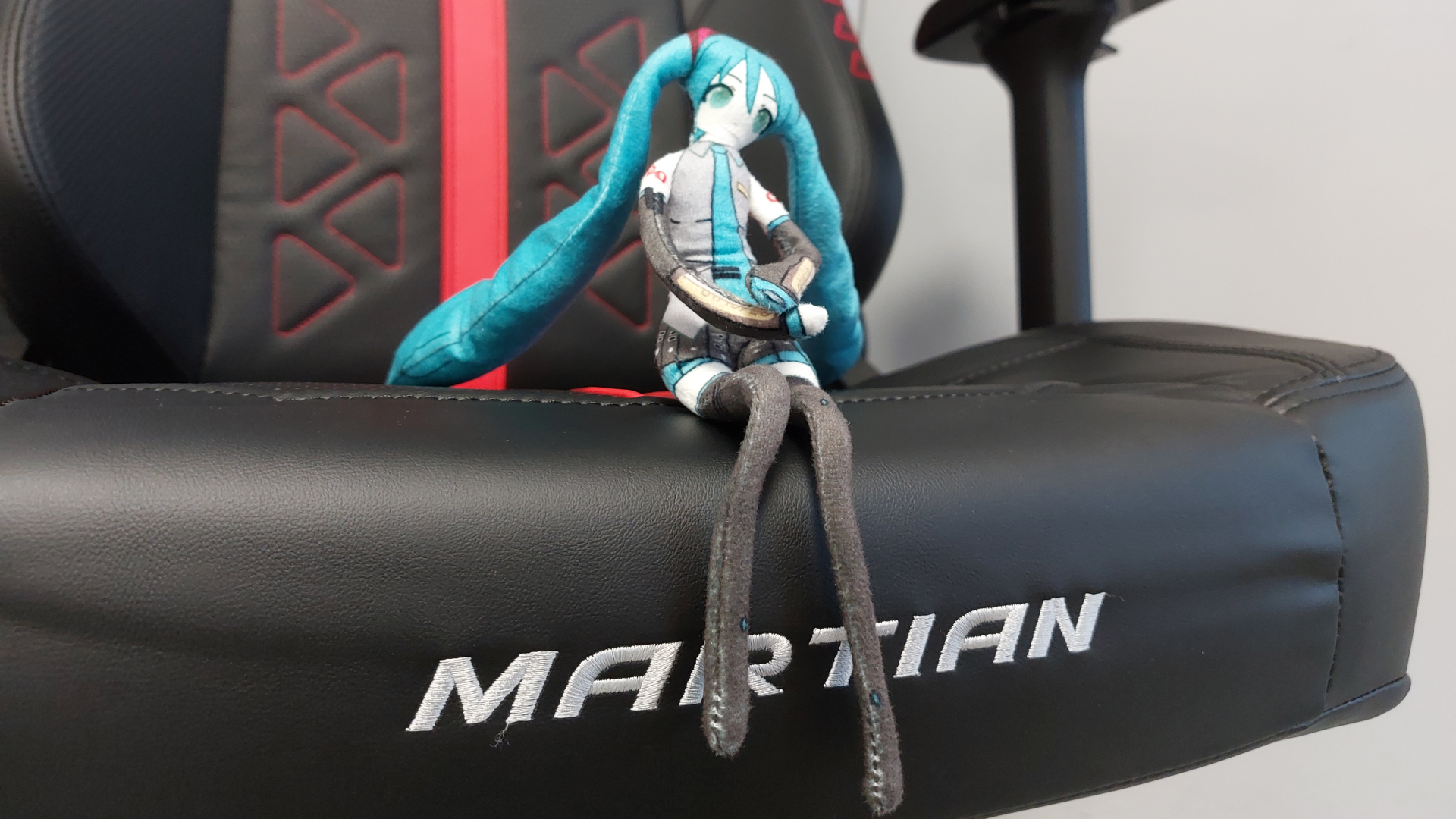Our Verdict
Strip away the framing and this is a throwaway JRPG that never finds its bite.
PC Gamer's got your back
What is it? Traditional JRPG reskinned to resemble a card game.
Expect to pay $30/£25
Developer Square Enix
Publisher Square Enix
Reviewed on RTX 2080 Ti, AMD Ryzen 5 5600X, 16GB RAM
Multiplayer? No
Link Official site
Hot on the heels of Inscryption, Voice of Cards is another card game where all is not as it seems. But where Daniel Mullins' feverish cabin battler dealt you a hand of jokers and proved more than the sum of its parts, Square Enix has barely shuffled the deck. This is despite featuring creative input from Yoko Taro, he of Nier and papier-mâché head fame. Come to this expecting his galaxy (moon?) brained genre subversion and the biggest twist is how ploddingly basic it all is.
In truth it's less a card game than a game built from cards. It's a cardboard kingdom dealt out by a disembodied game master who narrates the campaign. Characters, items and buildings slide across the table as they come into play, while hundreds of cards depicting roads, grass and seas are spread out to form an overworld for you to navigate tile-by-tile. If you've played Inscryption or Hand of Fate, where fantasy lands are abstractly suggested by a few crude tokens, there is a certain wow factor to Voice of Cards' more total world-building.
But the wow wears off. There's little variety or poetry in these building blocks, just acres of repeated grass and mountains, as sparse and basic as the 8-bit tilesets of a NES Dragon Quest. You can only paper over so much. Flashes of invention hint at the idea's potential—an ailing hero getting more dog-eared, a death represented as a violent tear—but these are rare. Compare it to the Gwent RPG, which magics up avalanches, castle sieges and multi-limbed beasts from similarly static parts, and Voice of Cards seems especially flat.
Under its novelty art it's a straight JRPG, as traditional as they come. There's a hero and a dragon, and lots of villages and dungeons between the two. There are small soap operas in the former, endless random encounters in the latter. There is a nutritionist obsessed with muscles, but that's the only real reminder that there's a weirdo at the wheel. But while the writing is only gently amusing, it's helped by the delivery of the narrator. He's voiced in English by Todd Haberkorn with pleasingly droll disdain for all the unfolding nonsense.
The adventure doesn't outstay its welcome, either. The whole thing is over in ten hours, even if you take the time to explore every corner of the world map and uncover rare equipment. If anything, it could be shorter, by stripping the padding from two late game dungeons. Forcing us through floor after floor of surprise monster attacks is duff at the best of times, let alone when it's all rendered with the same dingy card tile. Again: why opt for an art style that so aggressively amplifies repetition?
It doesn't help that Voice of Cards never finds its, well, voice in combat. It doesn't riff on card games or deck building as you might expect; it's yet more conservative JRPG thinking given a cute reskin: every hero has a deck of four moves, but is that really any different from selecting actions from the menu in, say, Final Fantasy 1? You could make the case that building that 'deck' of attacks nods to some modern favourites, but I only had to swap in three moves during the whole campaign, which speaks to the redundancy of that.
Like so much here, fighting hints at ideas that could be more engaging. Like the way it decorates the battlefield with the ephemera of tabletop action. There are physical dice to roll to inflict status effects, and counters acting as mana. But because you're fundamentally playing the same hand of moves every turn, there's none of the spontaneity or improvisation that defines even the simplest collectible card game. The art of these things is how your brain seizes (or not) on the luck of the draw. This system asks practically nothing of you.
Keep up to date with the most important stories and the best deals, as picked by the PC Gamer team.
Like so much here, fighting hints at ideas that could be more engaging
The list of half-realised ideas is endless. There's an elemental weakness system to keep you on your toes, but there are so few enemy types that you'll easily peg the winning strategies and spend an hour joylessly grinding out victories. Or how about a gem system that asks you to accrue mana stones to activate powerful attacks? Well, the attacks are priced so low, and the gems flow so readily, that you can basically drop nuke after nuke by the final stretch. The difficulty vaporizes as quickly as the goblins. And the happenstance cards, which apply random buffs and debuffs at the start of a turn, may as well not exist for how puny their punishments are. This, if anything, was the opportunity to add that missing creative thinking—as you adapt to surprise vulnerabilities—but it's entirely toothless.
Even without those weirdly balanced combat quirks, Voice of Cards would be a total pushover. The natural act of uncovering the world map (not as grand as it sounds—again, this is a ten hour game) is enough to level up way beyond the difficulty of the region you're in. Case in point: I didn't have to use a single restorative item until the final dungeon, by which point my inventory was maxed out and I was forced to manually discard an item every time a monster randomly dropped one in battle. This is 1) a dogshit thing to ask of a player, and 2) especially laughable given that the story concerns a medicinal drought. I'm straight up throwing healing balms into a volcano over here! Don't let the villagers find out.
What a shame that so little of this takes flight. The current trend for leaning into videogaming's tabletop roots has proven such fertile ground—from Inscryption's onion-like layers to the tarot-fueled brilliance of Hand of Fate (a game you'd do much better to discover in place of this)—that I'm sad that a singular talent like Taro couldn't do more with it. A real busted flush.
Strip away the framing and this is a throwaway JRPG that never finds its bite.
